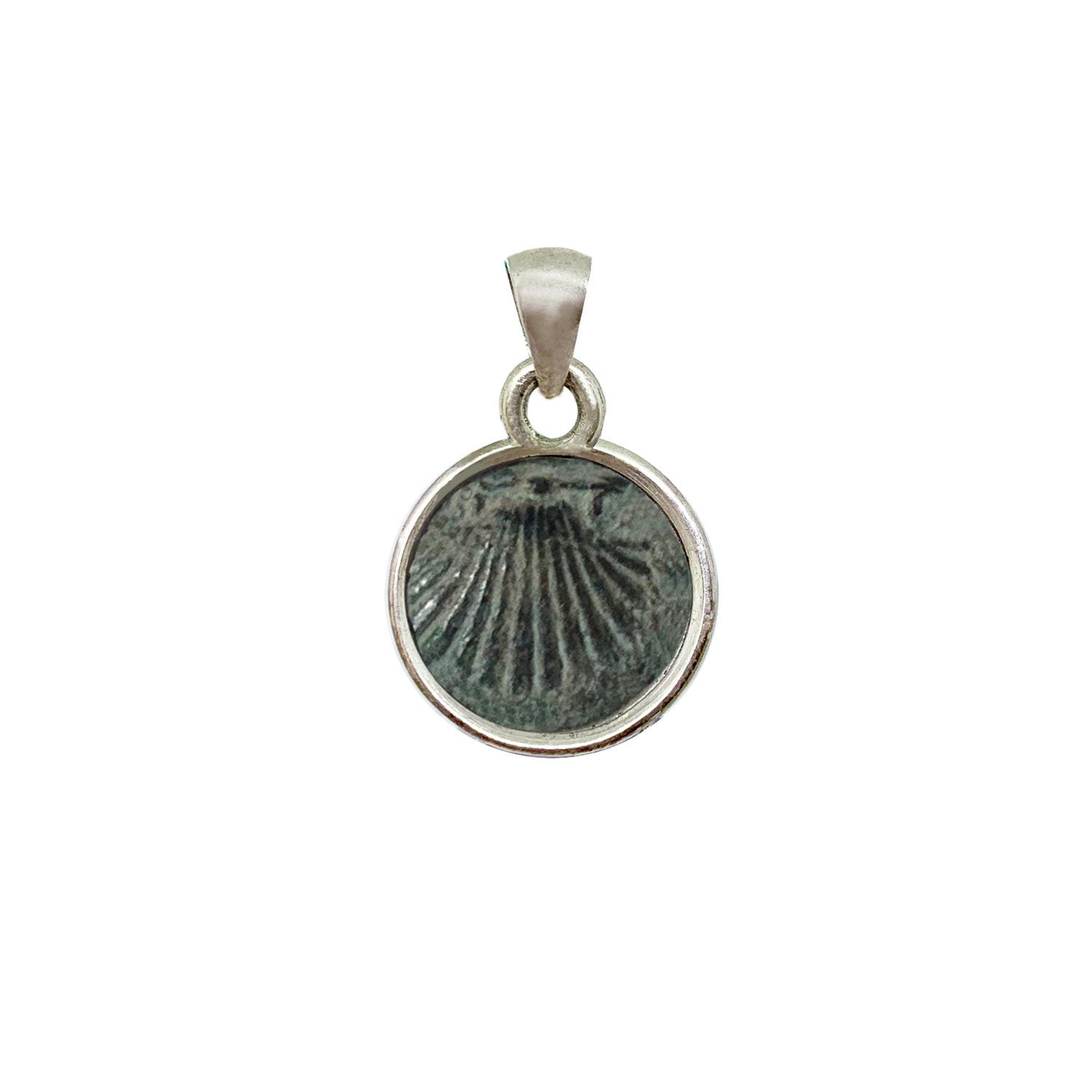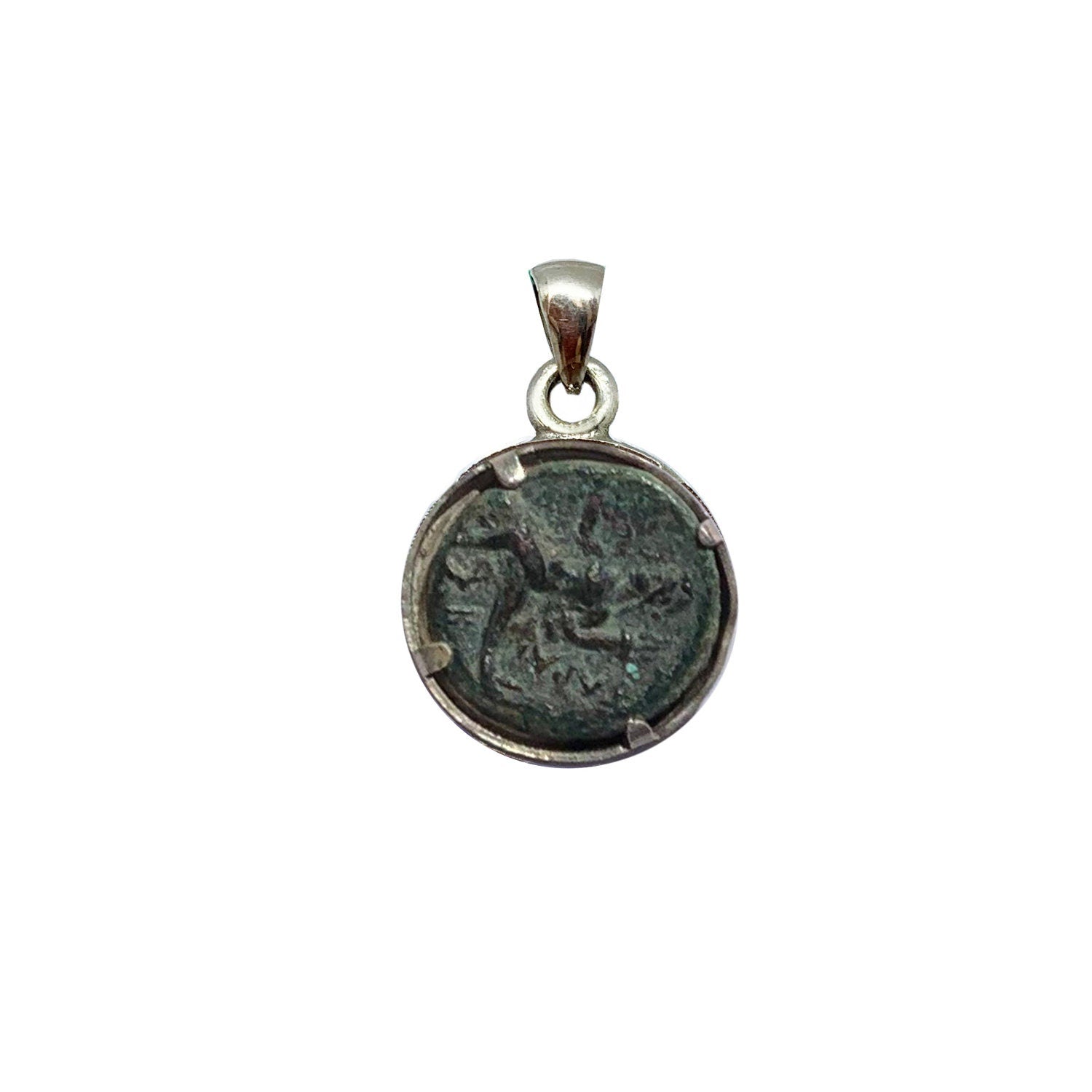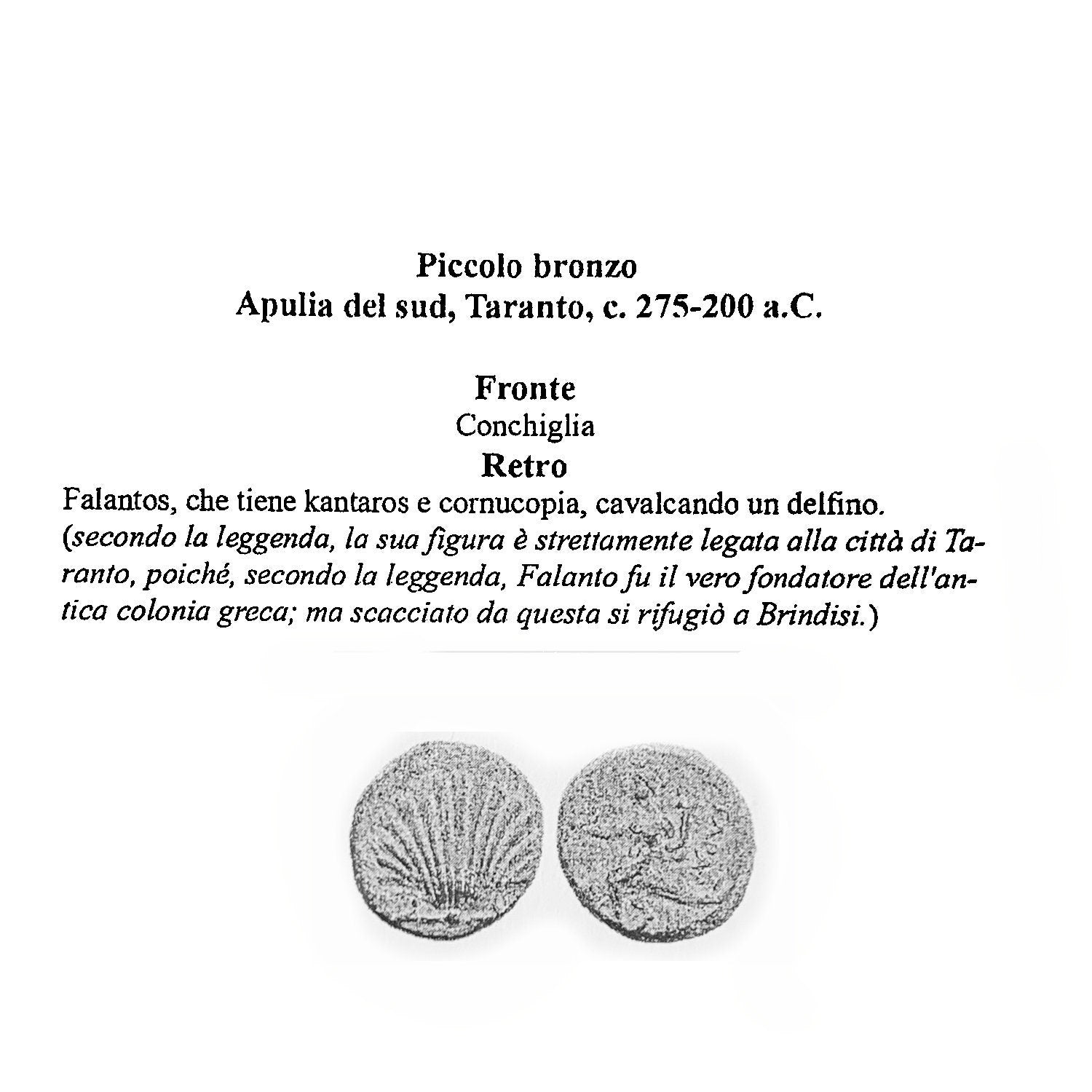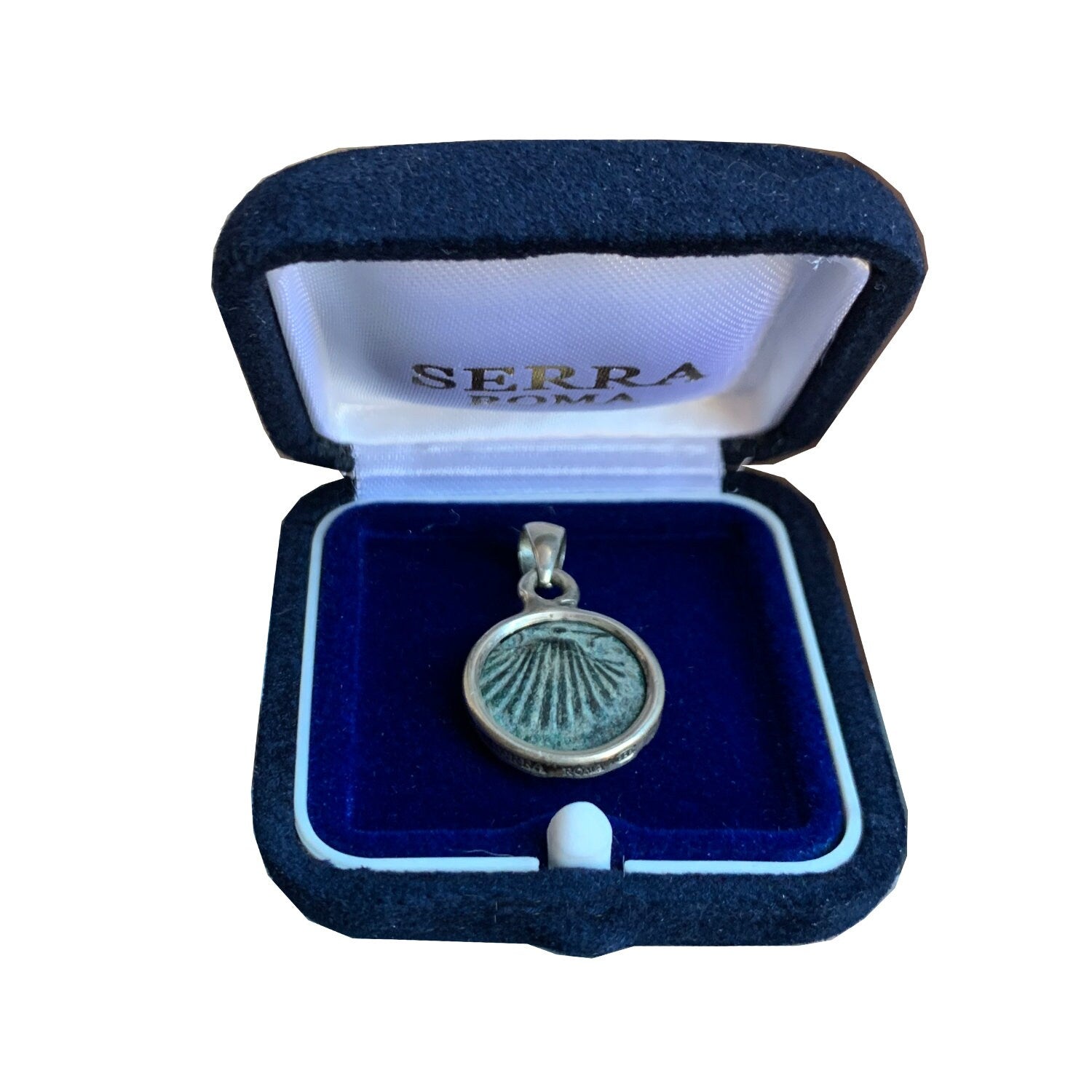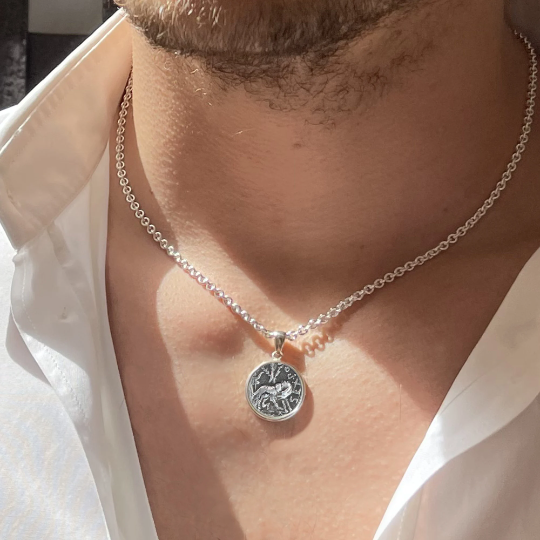SEASHELL Genuine Ancient Greek Bronze Coin 2nd-3rd cent BC Pendant
This sterling silver pendant features an authentic Greek bronze coin from the 2nd-3rd century BC, depicting a seashell on one side and Phalanthos, founder of the city of Taras, on the other. Phalanthos, a Spartan warrior, led a group called the Partheniae, marginalized offspring of Spartiates and unmarried women, to establish a new city after consulting the Oracle of Delphi.
Their journey was perilous, including a shipwreck in the Aegean Sea, where a dolphin saved Phalanthos. Upon reaching the Gulf of Saturo, Phalanthos realized the oracle's prophecy—"When you see rain from a clear sky, you will conquer territory and city"—as his wife Etra's tears fell while he slept on her lap, symbolizing rain from a clear sky. They founded the city of Taranto at this location, named after the hero Taras.
In ancient Greek mythology, Demeter is the Olympian goddess of the harvest and agriculture, overseeing grains and earth's fertility. Known as Sito ("she of the Grain") and Thesmophoros ("Law-Bringer"), Demeter also presided over sacred law and the life-death cycle. Central to the Eleusinian Mysteries, Demeter's worship predates the Olympian pantheon and is linked to the Anatolian goddess Cybele and the Roman goddess Ceres.
Our jewelry store, Serra Roma, proudly presents an exquisite collection that beautifully honors the ancient traditions of Greek and Roman civilizations. Each piece in our collection, including authentic ancient Roman and Greek coins and intaglios, is accompanied by a certificate of authenticity, providing proof of its historical significance and origin.

